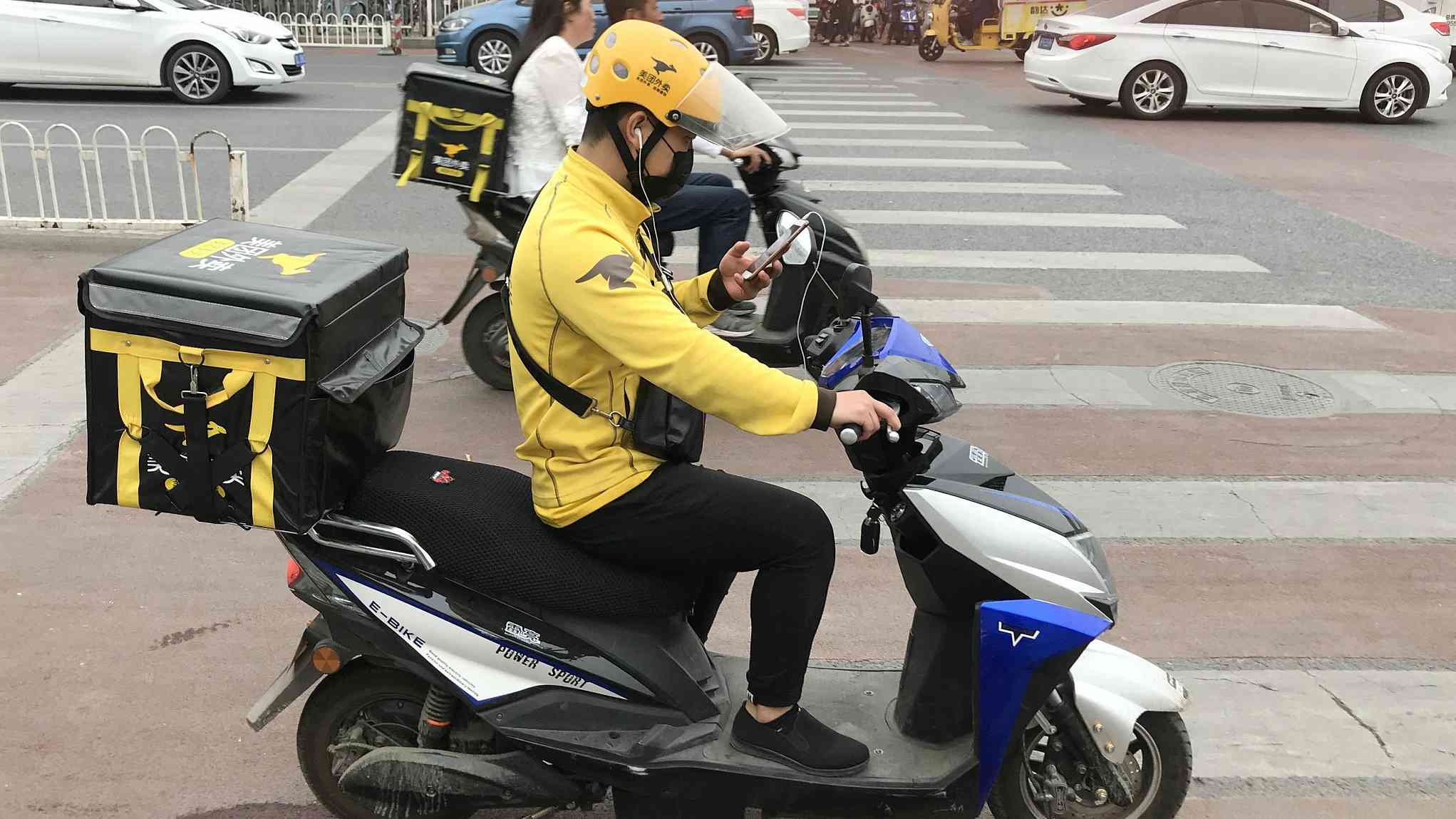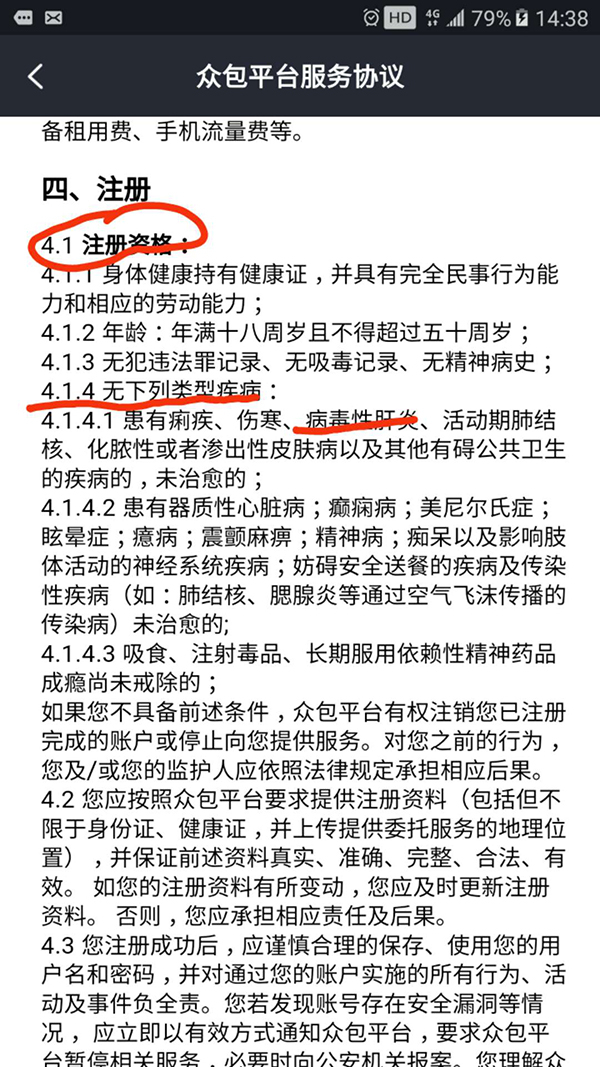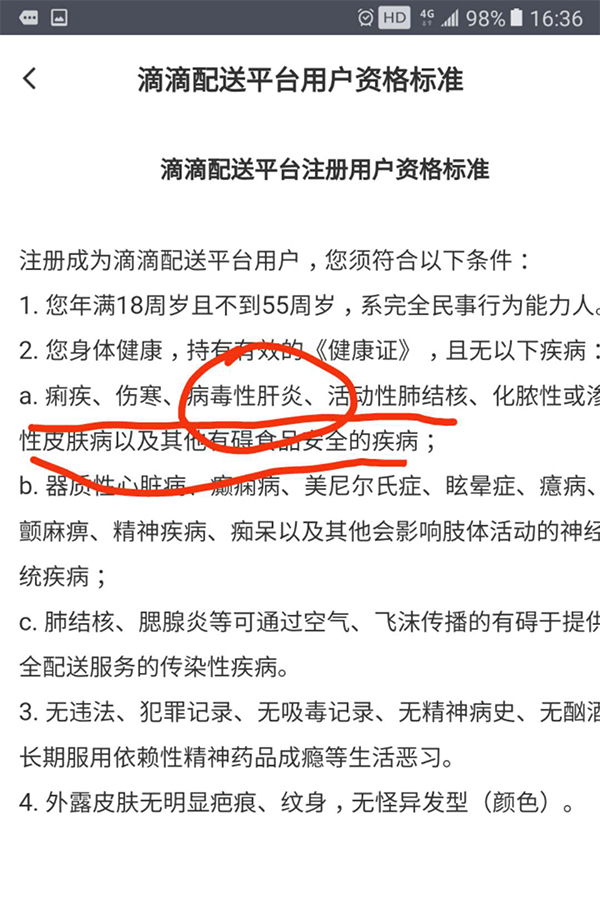 2018-06-11 14:12 GMT+8
2018-06-11 14:12 GMT+8 
A recruitment advertisement released by Meituan, one of the largest food delivery platforms in China, made controversial waves online as the company was suspected of discriminating against carriers of the hepatitis B virus (HBV).
In a job description for potential delivery men, the company said that applicants with “viral hepatitis” are not qualified to register on the platform, reported The Paper on Sunday.

Meituan said that applicants with “viral hepatitis” are not qualified to register on the platform. /The Paper Photo
Yiyou Community, a non-profit Chinese organization that strives for the rights of people suffering from hepatitis B, told The Paper on June 5 that Huang Xi (pseudonym), a construction worker in east China’s Jiangxi Province who intended to register as a delivery man on Meituan, found himself unqualified for the job as he was a HBV carrier.
Yiyou Community pointed out the company’s action of simply rejecting applicants with viral hepatitis was not in compliance with the country’s law and regulation since the Food Safety Law only restricted those with viral hepatitis A and viral hepatitis E from directly processing food and didn’t ban those with HBV. The community accused the company of discriminating against HPV carriers.

Didi Waimai's job requirement /The Paper Photo
However, this is not the only case in the food delivery industry. According to The Paper, Didi Waimai, Didi Chuxing-backed food delivery platform and Alibaba-backed Ele.me also listed the same job requirement for delivery men.
According to China’s Food Safety Law implemented in 2009, anyone who engages in any work involving ready-to-eat food that suffers from any disease including viral hepatitis A and viral hepatitis E should be transferred to another position.
In addition, a revised version of the Food Safety Law implemented in 2015, stated that those who suffer from any disease listed by China’s National Health Commission should not engage in any work involving ready-to-eat food. And the listed diseases include viral hepatitis A and viral hepatitis E.
None of the regulations or law mentioned that people who suffered from viral hepatitis B or carried HBV were banned from working in the food industry.

Meituan Delivery man/ VCG Photo
According to Deng Haihua, former spokesman of National Health Commission, HBV is transmitted through blood and bodily fluids, however not through daily contact, reported China News Service. He added by saying that inactive HBV carriers were not patients as they had no clinical symptoms and normal ALT levels that don't pose a threat to people in daily contact with them.
What’s more, since the implementation of the Food Safety Law in 2009, the examination of HBV was removed from the process of health checks for employees working in the food industry and other fields that required the health check, reported China News Service.
However, the ambiguous job requirements of delivery men on various food delivery platforms reflected that certain discriminations against HPV carriers still exist in China and have triggered a heated debate among netizens on social media.


Chinese netizens held different opinions on this issue. /Screenshot of WeChat.
“I don’t think it is a kind of discrimination [against applicants], after all, customers are concerned about food safety,” commented a user @Lili.
“China removed the health check for HBV. None of the health certificates for food industry or orientation health checks require this kind of check anymore,” said a user @NiChengKunNanZhengz.
According to the World Health Organization, an estimated 257 million people are living with the HBV infection around the world, including over 90 million infected people in China, which accounts for one-third of the world's population.


| 欢迎光临 肝胆相照论坛 (http://hbvhbv.info/forum/) | Powered by Discuz! X1.5 |